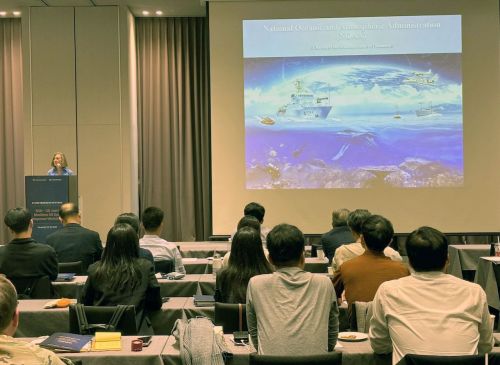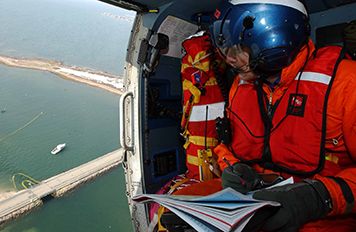NOAA Participates in Republic of Korea - U.S. Joint Maritime Oil Spill Response Workshop
In mid-November 2024, a Scientific Support Coordinator from OR&R’s Emergency Response Division participated in a Republic of Korea - U.S. Joint Maritime Oil Spill Response Subject Matter Expert Exchange Workshop held in Busan, Republic of Korea (ROK).
The purpose of the workshop, sponsored by U.S. Indo-Pacific Command, was for U.S. Forces Korea (USFK) and key ROK stakeholders to develop working relationships and procedures in order to effectively respond to an oil spill from a USFK facility or operation in the ROK. USFK operates several installations and contingency locations in the ROK, as well as associated vessels and other equipment.
Workshop participants included representatives of the ROK’s Coast Guard, Ministry of Oceans and Fisheries, and Ministry of the Environment; Korea Environment Institute; Marine Environmental Emergency Preparedness and Response Regional Activity Center; Korea Navy, USFK; and U.S. Coast Guard (USCG).
Among the topics presented by NOAA were an overview of OR&R’s scientific support role in oil and chemical spill responses in the U.S. and NOAA response tools available to spill responders. A spill table-top exercise was conducted during the workshop and participants also toured ROK response facilities and equipment in Busan.

https://response.restoration.noaa.gov/oil-and-chemical-spills/oil-spills/response-tools/response-tools-oil-spills.html
Software and Datasets
- GNOME suite and related programs:
- WebGNOME, NOAA's publicly available Web-based trajectory model that provides a user-friendly interface for modeling oil spill scenarios.
- PyGNOME, a scripting interface for automation and batch processing.
- GOODS, a tool that helps GNOME users access base maps, ocean currents, and winds.
- Desktop GNOME, the legacy version of GNOME; predicts the possible route pollutants might follow on the water's surface.
- Desktop ADIOS®, an oil weathering model.






Comments
Post a Comment